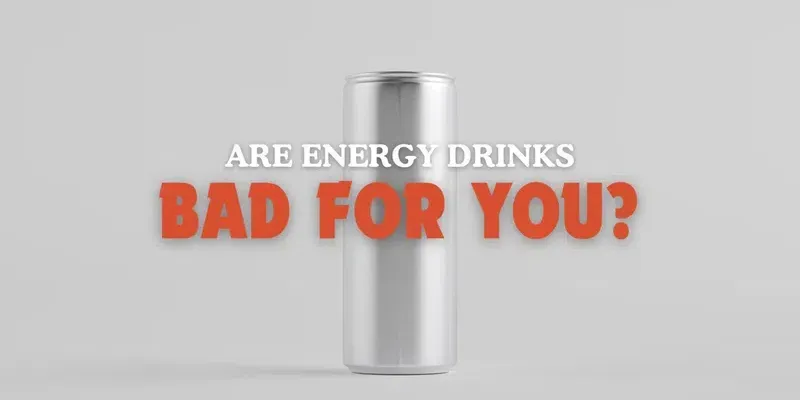Do Energy Boosters Really Work? Separating Fact from Fiction
Energy boosters are popular tools for combating fatigue and maintaining productivity throughout the day. From coffee and tea-infused drinks to green leafy supplements, these products promise enhanced alertness, focus, and stamina. But how effective are they really? While some claim immediate benefits, others doubt their efficacy and potential harm. It’s crucial to distinguish fact from fiction when it comes to energy-boosting substances, as their consumption can significantly impact your well-being.
What Are Energy Boosters?
Energy boosters are products or substances designed to increase physical and mental energy levels. They are popular among athletes, students, and anyone looking to overcome fatigue. Let’s explore the most common types of energy boosters:
1. Caffeinated Beverages
Drinks like coffee, tea, and energy drinks are popular due to their caffeine content, a natural stimulant that enhances alertness by blocking adenosine, a neurotransmitter linked to sleepiness. Options like black coffee and green tea not only boost energy but also provide antioxidants that support overall health.
2. Energy Bars and Gels
Crafted for athletes, energy bars and gels are rich in carbohydrates, which the body quickly converts into glucose for fuel. These are particularly useful during endurance sports like running or cycling, where sustained energy is essential.
3. Dietary Supplements
Dietary supplements include a range of energy-enhancing options such as vitamins, minerals, and herbal extracts. B-complex vitamins are important for energy production, while adaptogens like ginseng and guarana may help the body cope with stress and fatigue. Some supplements also contain amino acids like L-carnitine, which may support endurance and recovery.
4. Natural Foods
Whole, nutrient-dense foods like bananas, nuts, and honey are excellent natural energy sources. Bananas, rich in natural sugars and potassium, provide a quick energy fix. Nuts like almonds and walnuts offer healthy fats, protein, and fiber for sustained energy, while honey delivers an instant boost.
Do Energy Boosters Really Work?

The effectiveness of energy boosters varies based on ingredients and their interaction with the body. Here’s a breakdown of common energy-boosting solutions:
1. Caffeine: The Classic Stimulant
Caffeine is a well-researched component in energy boosters. It works by blocking adenosine, increasing alertness. Studies show caffeine enhances focus, reaction time, and physical performance.
2. Carbohydrates in Energy Bars and Gels
Carbohydrates are the body’s primary fuel source, making energy bars and gels effective for quick glucose boosts during endurance activities. Research confirms that consuming carbohydrates during prolonged exercise improves stamina.
3. Herbal Extracts and Supplements
Herbal ingredients like ginseng and guarana are marketed as energy enhancers that reduce fatigue. Some studies indicate mild benefits, but the evidence is inconsistent.
4. Natural Food Alternatives
Whole foods like bananas and almonds are excellent natural energy sources. Bananas provide potassium and carbohydrates for quick energy, while almonds offer healthy fats and protein for sustained fuel. These nutrient-rich options are scientifically backed and free of artificial additives.
Debunking Myths About Energy Boosters:
Energy boosters are surrounded by misconceptions. Let’s address two common myths:
1. Instant Energy Works the Same for Everyone
It’s a myth that energy boosters affect everyone equally. Factors like metabolism, activity level, diet, and health influence their effectiveness. For example, while some feel an energy surge from caffeine, others may experience side effects like jitters.
2. More Is Always Better
The idea that more energy boosters yield better results is misleading. Overuse can be harmful. For instance, while moderate caffeine intake can boost energy, excessive consumption may lead to jitters, anxiety, or insomnia.
3. Energy Drinks Are a Reliable Solution
Although energy drinks offer a quick boost, they often contain high sugar and artificial ingredients, leading to temporary spikes followed by crashes.
4. Supplements Are a Magic Fix
Supplements should complement, not replace, a balanced diet and healthy lifestyle for sustainable energy management.
Risks Associated with Energy Boosters:
While energy boosters can provide quick energy when used responsibly, they also pose potential risks:
- Caffeine Overdose : Excessive caffeine can cause side effects like a racing heart and anxiety.
- Sugar Crashes : Energy products high in sugar may lead to brief energy surges followed by crashes.
- Unregulated Supplements : Some supplements may contain undisclosed ingredients or contaminants.
- Dependency : Relying on boosters instead of addressing fatigue’s root causes can lead to long-term health issues.
Natural Ways to Boost Your Energy:

Consider these sustainable methods to naturally enhance your energy levels:
1. Eat a Balanced Diet
Fuel your body with whole grains, lean proteins, fruits, and vegetables to maintain steady energy.
2. Stay Active
Regular exercise improves circulation, releases endorphins, and energizes you.
3. Prioritize Quality Sleep
Aim for 7-8 hours of uninterrupted sleep each night to recharge your body.
4. Manage Stress Effectively
Use mindfulness techniques like meditation or yoga to reduce stress-induced fatigue.
Conclusion:
Energy boosters can be beneficial when used wisely but should not replace a healthy lifestyle. Understanding their ingredients, benefits, and risks is crucial. Whenever possible, prioritize natural energy sources and address root causes like poor nutrition, lack of sleep, or high stress. By making informed choices, you can maintain sustainable energy without relying on short-term solutions.










